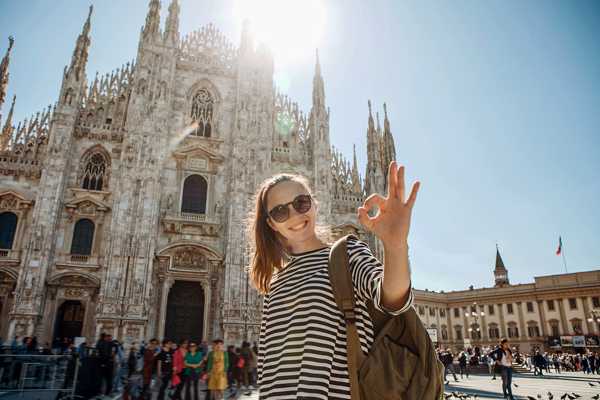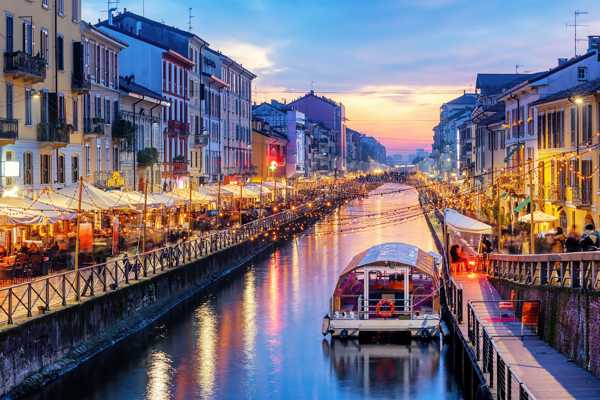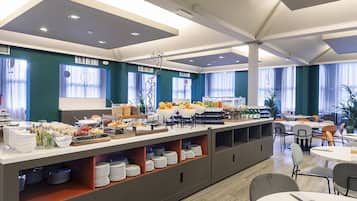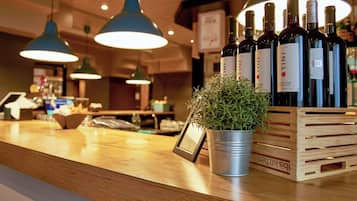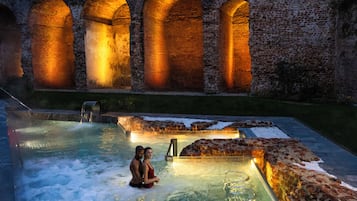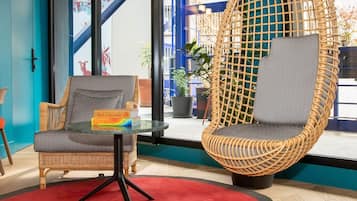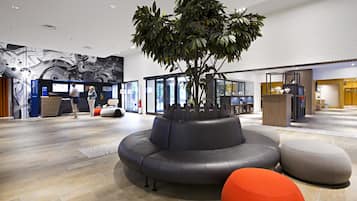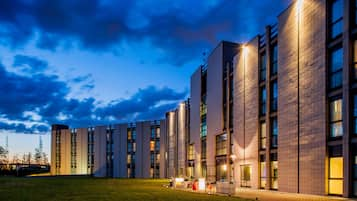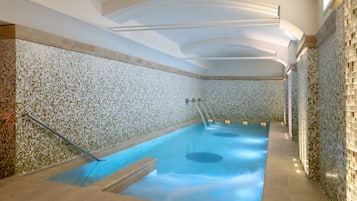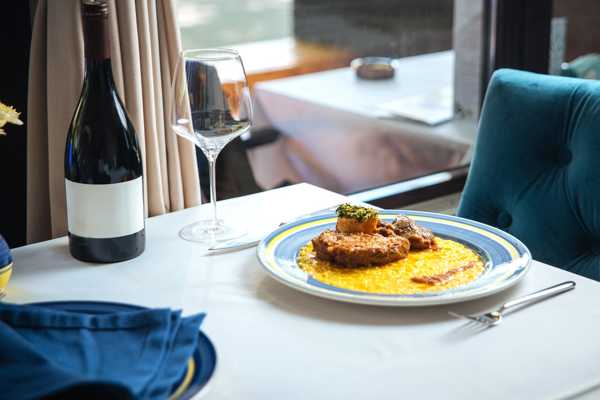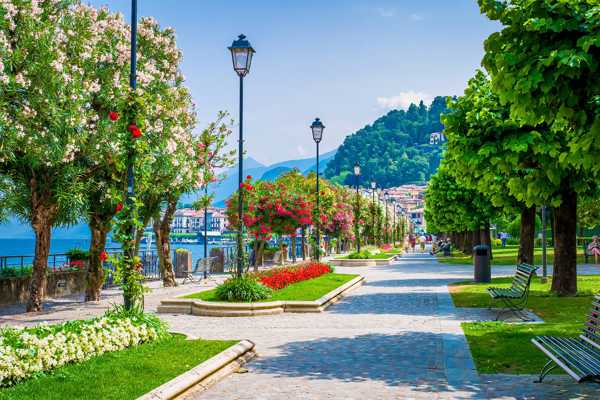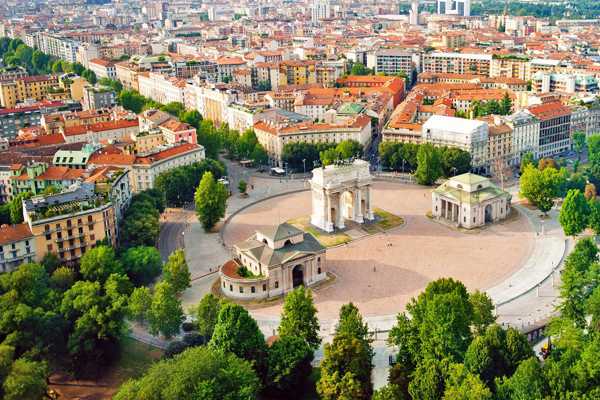Here are fun ways to see Milan like a local as there’s so much to see below the surface. By 'below the surface', we mean that there’s literally a ‘forgotten’ Art Deco beneath the city. Milan has ancient roots with Roman stones in its centre as well as medieval churches. You’ll also find buildings of the Visconti and Sforza families, the Spanish dominion, and the Hapsburgs.
The Italian city grows, evolves, and never stops, with its monuments and impressive architecture stretching skywards. Even so, this great and beautiful city also has little gems hidden between the folds of the urban fabric: alleys and streets lead to unexpected delights just waiting for you to discover. Here are the unusual sights to check out on your visit to the metropolis.
- 1
Albergo Diurno Venezia
Long-abandoned Art Deco baths under Porta Venezia

- Tarih
- Fotoğraf
- Sıra dışı
Albergo Diurno Venezia is an underground hotel with bathing facilities built in the 1920s beneath Porta Venezia in Milan. In the 20th century, few homes had bathrooms, and the Albergo Diurno, which means ‘daytime hotel’, was opened for both locals and visitors.
Its stylish design featured a collonaded hall surrounded by personal care sections, such as public baths with tubs, barbers, hairdressers, manicurists, laundrettes, and even typing services. Its early 20th-century style décor and furnishings are fine examples of Art Deco. It eventually rendered obsolete and closed following the economic boom. Albergo Diurno is now managed by FAI, the national trust for Italy, which organises guided tours and events.
Konum: Piazza Guglielmo Oberdan, 3, 20129 Milano MI, Italy
Haritafotoğraf: Federico Bernardeschi (CC BY-SA 4.0) değiştirildi
- 2
Street art on the walls of the Diocese Archives
From parchment to plaster

- Ekonomik
- Fotoğraf
- Sıra dışı
Milan's street art is oddly found on the walls of the Diocese Archives, the nearby Ospedale Gaetano Pini clinic and even the Monastero Della Visitazione convent. A whole neighbourhood’s been transformed by the colourful works of commissioned street artists and famous graffitists.
Find Ivan Tresoldi’s antique-style characters on the Archive’s entrance, now traced onto plaster rather than parchment, or the abstract piece on the hospital walls by Paolo Bordino. ‘Pao’ as he is named, is known for morphing bollards in the city into penguins. Also, check out the portraits of famous Milanese citizens on the convent walls created by Italian street art duo known as Orticanoodles. To see this open-air gallery, walk for 15 minutes from Piazza Duomo, or take the metro and get off at Crocetta.
Konum: Via S. Calimero, 13, 20122 Milano MI, Italy
Haritafotoğraf: Zio Mauri 47 (CC BY-SA 4.0) değiştirildi
- 3
Giardino delle Culture
A redeveloped square with street art in Milan

- Ekonomik
- Fotoğraf
- Sıra dışı
Giardino delle Culture near Piazza Cinque Giornate in Milan shows that all you need is a bit of imagination and goodwill to modernise an urban space. It used to be a concrete-covered area surrounded by buildings. Someone suggested it be turned into a car park, but residents managed to convert it into the vibrant place it is today using funds from a benefactor.
A famous graffitist painted gorgeous murals onto the buildings’ facades, then benches were added and little flowerbeds dug. It was fenced in with regulated access. It evolved into a gathering place where you can relax while watching your kids play.
Konum: Via Emilio Morosini, 8, 20135 Milano MI, Italy
Açık olduğu saatler: Daily from 10 am to 7 pm
Haritafotoğraf: Irene Grassi (CC BY-SA 2.0) değiştirildi
- 4
East Market Milan
An eclectic vintage market in a former industrial hangar

- Ekonomik
- Alışveriş tutkunları
East Market Milan is a place not to be missed if you like alternative shopping and rummaging for pre-loved items. The market was established with the initiative to ‘renew old things’, which rings true in its choice of location: a former WWII aeronautics factory.
Head out to these old industrial depots in the city's eastern suburbs every second-to-last Sunday of the month for the little flea market. It’s not just about buying and selling, but also exchanging. You can find just about anything in the market, be it a special gift item from the neatest stand or the contents of someone's attic.
Konum: Via Mecenate, 84, 20138 Milano MI, Italy
Telefon: +39 (0)3 92 04 30 853
Harita - 5
Casa 770
One of the 'most copied' buildings in the world

- Ekonomik
- Tarih
- Sıra dışı
Casa 770 is a Dutch-style house in Milan that stands out from the nearby residences on Via Poerio with its red-brick facade and sloping roofs. As you look at it, you could be in 12 different cities, since copies of the building are found in Montreal, San Paolo, Buenos Aires, Melbourne, and other locations with the same shapes, dimensions, and features.
The original house is the World Headquarters of the Chabad-Lubavitch Hasidic movement on 770 East Parkway in Brooklyn – the address became the inspiration for the Milan house’s name. The owner was a rabbi with a distinguished son-in-law in the Jewish community who felt compelled to replicate the house to preserve his family's prestige.
Konum: Via Carlo Poerio, 35, 20129 Milano MI, Italy
Harita - 6
Madonna del Grembiule
The fresco that survived the bomb

- Ekonomik
- Tarih
- Fotoğraf
- Sıra dışı
Cappella della Madonna del Grembiule survived the Bombing of Milan in World War II. You can find the ruins of this chapel while strolling down Via Meravigli and a taking a detour via the alley beside Chiesa di Santa Maria alla Porta. The floor, part of the plinth and, notably, the fresco of the Madonna and Child, miraculously survived.
Venerated since the 17th century, the image is believed to also have healing powers. The chapel wasn’t rebuilt, leaving the image visible to passersby. The adjacent church is used by the Polish community, which explains the bilingual writing at the entrance. It's home to a copy of the Black Madonna of Częstochowa and a statue of Pope John Paul II.
Konum: Vicolo Santa Maria alla Porta, 20123 Milano MI, Italy
Haritafotoğraf: Paolobon140 (CC BY-SA 4.0) değiştirildi
- 7
Villa Invernizzi
See pink flamingos in this exotic spot in Milan

- Ekonomik
- Fotoğraf
- Sıra dışı
Villa Invernizzi is one of the most exotic spots in Milan. You can find it on your walks around the Giardini di Porta Venezia in the so-called Quadrilatero del Silenzio. The quiet residential area is where Invernizzi, inventor of Mio cheese, lived. Although it’s closed to the public, if you look through the garden fence, you'll notice it's full of pink flamingoes.
Most would never have thought that you can admire such exotic animals in the middle of a city. The flamingoes were brought from Africa and Chile and the environment created for them at Villa Invernizzi was so favourable they started to reproduce and eventually became a proper flock.
Konum: Via Cappuccini, 7, 20122 Milano MI, Italy
Harita - 8
Bar Luce
A stunning cafe designed by filmmaker Wes Anderson

- Yemek
- Gece Yaşamı
Bar Luce is a cosy dining spot inside Milan’s Prada Foundation that was designed by acclaimed film director Wes Anderson. It’s a testament to his architectural skills besides filmmaking. Anderson wanted to create an environment where customers would feel comfortable; where they could not only eat and drink but also read, talk, and write.
The Formica furniture, flooring, and wooden panels aim to recreate a 1950s Italian vibe. Look carefully at the ceiling and the tops of the walls, and you'll spot details imitating the decorations in Galleria Vittorio Emanuele in Milan's city centre. You can get there either from within the Prada Foundation or from via Orobia.
Konum: Largo Isarco, 2, 20139 Milano MI, Italy
Açık olduğu saatler: Thursday–Sunday from 9 am to 7 pm (closed Monday–Wednesday)
Telefon: +39 02 5666 2611
Haritafotoğraf: a_marga (CC BY-SA 2.0) değiştirildi
- 9
Quartiere Maggiolina
Find odd igloo-shaped houses

- Ekonomik
- Tarih
- Fotoğraf
- Sıra dışı
Quartiere Maggiolina is a neighbourhood in Milan that’s known for its odd igloo-shaped houses. Architect Mario Cavallè oversaw the project, applying a model already trialled in the United States. The unusual shape made for highly flexible arrangement of the houses’ interiors. They were built after WWI, when Milan was being rebuilt.
Cavallè also built mushroom-shaped cottages which were eventually demolished in the 1960s. The igloos were also meant to be destroyed, but residents had grown fond of them and objected. To get there, just take the Lilla metro line to Marche or Istria and head to Via Lepanto.
Konum: Via Lepanto, 20125 Milano MI, Italy
Harita - 10
San Bernardino alle Ossa
A chapel covered in bones

- Ekonomik
- Tarih
- Fotoğraf
- Sıra dışı
Chiesa di San Bernardino alle Ossa near Piazza Fontana in Milan is a church known for its ossuary chapel with skull and bone-covered walls. From the outside, the church looks more like a residence than a church. Inside, you’ll find the skeletons in the ossuary down the aisle to the right of the entrance.
Many believe that the skeletal remains were from the former hospital nearby or came from the disused city cemeteries. Look above the door and you'll see cases containing the remains of those sentenced to death. Also inside the chapel is the tomb of some of Christopher Columbus' descendants, whose coat of arms still features on the sides of the altar.
Konum: Piazza Santo Stefano, 20122 Milano MI, Italy
Açık olduğu saatler: Monday–Friday from 8 am to 6 pm, Saturday from 9.30 am to 6 pm (closed on Sundays)
Telefon: +39 (0)2 76 00 81 45
Haritafotoğraf: G.dallorto (CC BY-SA 2.5) değiştirildi

